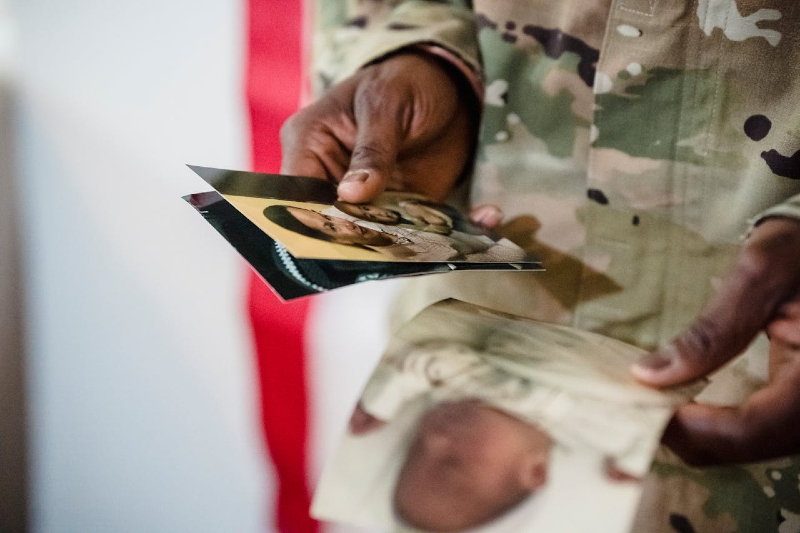What is Parole in Place (PIP)? Everything You Need to Know

Parole in Place (PIP) is a little-known but potentially life-changing immigration program that offers certain undocumented individuals a pathway to legal status in the United States.
While not a permanent solution, PIP provides temporary protection from deportation and employment authorization for eligible family members, including those of U.S. military personnel. In this post, we’ll explore what Parole in Place is, who qualifies for it, and how it can benefit families facing complex immigration situations.
Historical Context of Parole in Place (PIP)
Parole in Place is not a new concept in immigration law, but it’s one that’s gaining renewed attention. PIP allows certain individuals who entered the United States without inspection to remain in the country temporarily. It’s a form of discretionary relief that’s been around for years, but its application has evolved over time.
The roots of Parole in Place stretch back to the Immigration and Nationality Act (INA), which grants the Department of Homeland Security the authority to “parole” individuals into the U.S. for urgent humanitarian reasons or significant public benefit. Initially, this was primarily used for individuals outside the country. However, over time, the concept was expanded to include those already present in the U.S. without lawful status.
How PIP Differs from Other Forms of Immigration Relief
Unlike many other forms of immigration relief, PIP doesn’t necessarily provide a direct path to permanent residency, but it can in certain situations. Instead, it offers a temporary reprieve from removal and, crucially, can open doors to other immigration benefits that were previously closed due to unlawful entry.
For example, let’s say you’re married to a U.S. citizen but entered the country without inspection. Normally, you’d have to leave the U.S. and apply for an immigrant visa at a U.S. consulate abroad, potentially triggering lengthy bars to re-entry. PIP can change that equation entirely.
The 2024 Parole in Place Program
In a significant move, the Biden administration announced a new Parole in Place initiative in 2024. This program represents a substantial expansion of PIP, potentially affecting hundreds of thousands of families.
Key Features of the New Initiative
The 2024 PIP program focuses on noncitizen spouses of U.S. citizens who have been living in the U.S. without lawful status. It’s designed to promote family unity and provide a path to lawful status for those who have built lives here but have been caught in immigration limbo.
Eligibility Criteria for Noncitizen Spouses and Children
To qualify for this new PIP program, applicants must meet several criteria:
- Be physically present in the U.S. without admission or parole
- Have been continuously present in the U.S. for at least 10 years as of June 17, 2024
- Have a valid marriage to a U.S. citizen as of June 17, 2024
- Not have disqualifying criminal history or pose a threat to national security or public safety
It’s worth noting that children of eligible spouses may also qualify under certain conditions.
Benefits of the New Parole in Place Program
The potential benefits of this program are substantial and could be life-changing for many families.
Protection from Removal
Perhaps the most immediate benefit is protection from removal. For many families living in fear of separation, this alone can provide immense relief.
Work Authorization Opportunities
Individuals granted PIP can apply for work authorization, allowing them to legally work in the U.S. This can open up new employment opportunities and provide greater financial stability for families.
Pathway to Lawful Permanent Residence
While PIP itself doesn’t grant permanent residence, it can pave the way for eligible individuals to adjust their status without having to leave the country. This is a crucial benefit, as it eliminates the risk of triggering re-entry bars that could separate families for years.
Parole in Place Application Process and Requirements
The application process for the new PIP program involves several steps and requires careful attention to detail.
USCIS Application Procedures
To apply, eligible individuals will need to file a form with USCIS along with supporting documentation. The specific form and exact procedures will be detailed in a forthcoming Federal Register Notice.
Required Documentation and Evidence
Applicants will need to provide evidence of their continuous presence in the U.S., their relationship to a U.S. citizen spouse, and other supporting documents. This might include things like birth certificates, marriage certificates, utility bills, tax returns, and more.
Fee Structure and Potential Waivers
While the exact fee structure hasn’t been announced yet, there will likely be fees associated with the application. However, fee waivers may be available for those who can demonstrate financial hardship.
Potential Challenges and Considerations
While the new PIP program offers hope for many families, it’s not without its challenges and potential pitfalls.
National Security and Public Safety Vetting
All applicants will undergo thorough background checks and vetting. Those who pose a threat to national security or public safety will be disqualified from the program.
Criminal History Implications
Having a criminal record doesn’t automatically disqualify you, but certain convictions could make you ineligible. It’s crucial to discuss any criminal history with an experienced immigration attorney before applying.
Risks for Those in Removal Proceedings
If you’re currently in removal proceedings, you may still be eligible to apply for PIP. However, your case will be evaluated on an individual basis, taking into account the circumstances of your proceedings and other factors.
Explore Your Parole in Place Options
The 2024 Parole in Place program represents a potentially transformative opportunity for many foreign individuals and their families in the United States. By providing protection from removal, work authorization, and a potential path to lawful permanent residence, it offers hope to those who have built lives here but have been living in the shadows due to their immigration status.
However, immigration law is complex and ever-changing. If you believe you may be eligible for this program, contact our attorneys. At the Law Office of Lina Baroudi, we are committed to helping families navigate these challenging processes.
Don’t let this opportunity pass you by – reach out to us today to discuss your situation and explore your options under the new Parole in Place program.



